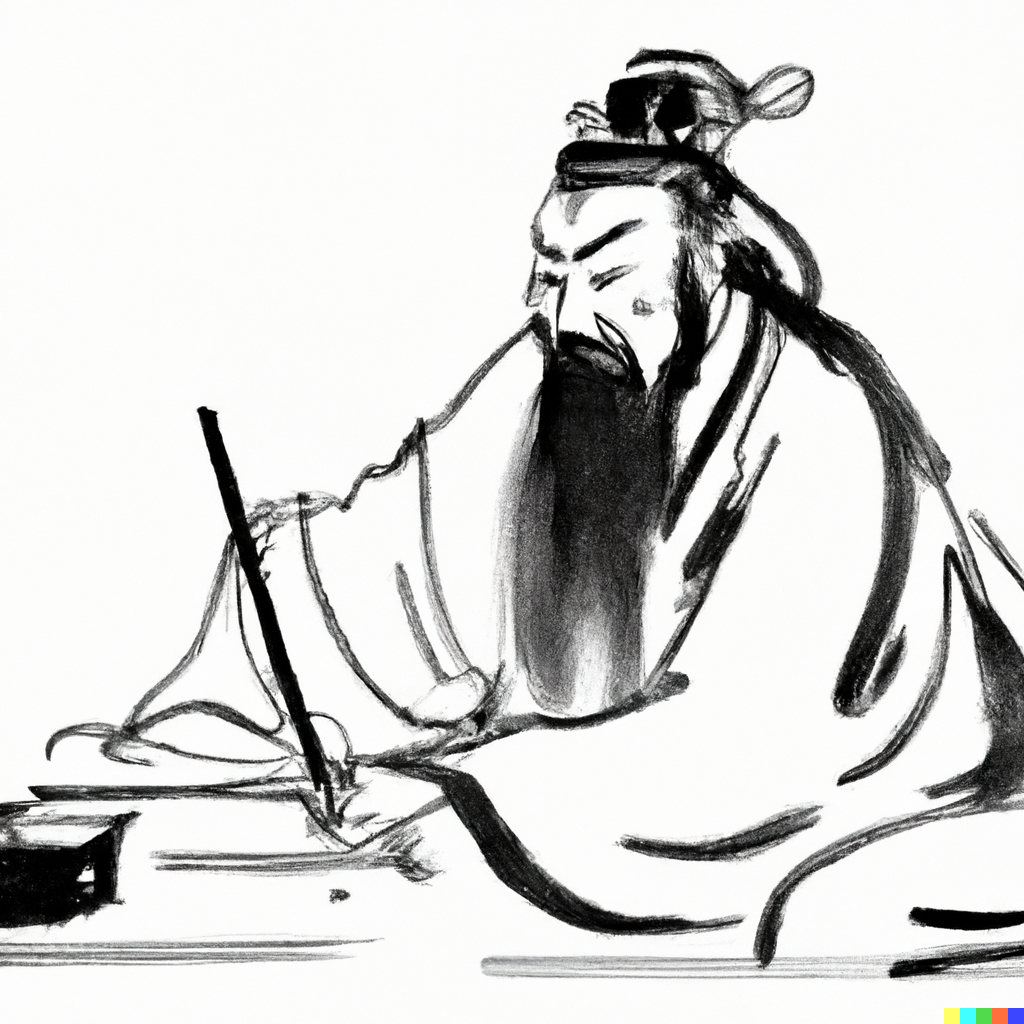|
Getting your Trinity Audio player ready...
|
Philosophy origins are rich and stretch back over 2,500 years. The origins of Western philosophy can be traced back to ancient Greece, where the first philosophers were lovers of wisdom.
These early philosophers were interested in understanding the nature of reality and the world around them. And they sought to answer fundamental questions about the universe, including what exists, what is true, and how we should live.
Philosophy origins show philosophers were the first to ask fundamental questions about the nature of reality, making it the precursor to almost every field of study that would later be developed. The disciplines of neuroscience, physics, mathematics, biology, and more, all have roots within philosophy.
Now a two-way-street, these disciplines have gone on to have great influence and guidance over philosophy and its branches.
While we focus primarily on Western philosophy, we also discuss the Eastern philosophical tradition. We include some of the most influential periods, thinkers, and ideas, starting with the ancient philosophers, and ending with the state of contemporary philosophy.
This brief history focusses on three pivotal periods of time in philosophy:
- Ancient philosophy
- Medieval philosophy, and
- Modern and contemporary philosophy.
Ancient Philosophy
One of the earliest and most influential philosophers in the Western tradition was Socrates, who lived in the 5th century BCE.
Socrates and Pre-Socrates
Socrates is known for his method of questioning, which he used to challenge the beliefs of his fellow citizens to help them think more critically about the world. He is also known for his belief about the importance of living a virtuous life and for his famous quote, “the unexamined life is not worth living.”
Approximately one or two centuries prior to Socrates, the Pre-Socratic philosophers, including Pythagoras, Zeno, Heracleitus, Anaximenes, and Democritus, laid much of the groundwork for the work done in Socrates’ time.
They were some of the first to officially study the human body and mind, time and space, and the meaning of life.

Plato and Aristotle
After Socrates, the philosophy of Plato and Aristotle had a major impact on the development of Western thought. Plato was a student of Socrates, and is known for his theory of forms, in which he argued that there are eternal, immutable forms or ideas that are the basis of all reality.
Aristotle was a student of Plato, and he is known for his emphasis on reason and observation as the basis for understanding the world. He also made significant contributions to the fields of logic, politics, and biology.
Eastern Philosophy Origins
The philosophy of Buddhism and Taoism developed in the East. Buddhism centered around living a spiritually and morally fulfilled life, while Taoism balanced with nature.
One of the earliest and most influential Eastern thinkers was Confucius who lived about 50 years before Plato. Confucius was mostly concerned with moral and political philosophy.
It is easy to draw parallels between the philosophy of Confucius and Plato, who we discussed in What Were Plato’s Beliefs – And the most Relevant Today? Confucious saw humans as Plato did; rational and moral beings, fulfilling moral duties, gaining knowledge, and honing personal virtues. These were the keys to fulfillment in life.
Similarities between Plato and Confucius

Plato and Confucius were both active in their respective political spheres and had a sense of personal duty to use their philosophy to influence politics, society, and individual lives.
They lived in vastly differing political and social climates, and there was no way to bridge the gap in distance between them. So, it is fascinating the two great thinkers had such similar theories regarding how to live a good life.
Flint McGlauglin’s comparison of Plato and Confucious’ ethical philosophies highlights how similar their ethical and political ideas were.
Their theories were both pragmatic and palatable, and provided a promising political, social, and individual ideology people could live by.
Medieval Philosophy
The centuries that followed ancient philosophers saw philosophy continuing to evolve and expand. Philosophers in different parts of the world contributed their own unique perspectives and ideas.
Western philosophy
In the West, the medieval period saw the emergence of Christian philosophers like Augustine and Thomas Aquinas, who sought to reconcile the teachings of Christianity with the ideas of the ancient philosophers.
During the enlightenment, they rediscovered and reinterpreted the philosophy of the ancient Greeks and Romans. This led to the development of modern philosophical movements like empiricism and rationalism.
Empiricism, which is based on the idea that knowledge comes from experience, was championed by philosophers such as John Locke and David Hume, while rationalism, which emphasises the use of reason as the primary source of knowledge, was championed by philosophers such as René Descartes and Immanuel Kant.
This was a rich time in the history of philosophy, and continues to be a heavily studied period.
Eastern Philosophy
In the East, the philosophical tradition split primarily into traditional and non-traditional branches. Confucianism saw its first resurgence in the 1100’s with the emergence of Zhu Xi’s Neo-Confucianism. For more information regarding Neo-Confucian Philosophy, the Internet Encyclopedia of Philosophy has an extensive overview.
Modern and Contemporary Philosophy
In the 19th and 20th centuries, philosophy underwent further developments and diversifications, with philosophers exploring a wide range of topics and approaches.
Some of the major philosophical movements of this period include;
- Existentialism, which emphasises the individual’s experience of existence and the search for meaning in life, and
- Positivism, which advocates the use of scientific methods to study social phenomena.
Pexels, Charlotte May, https://www.pexels.com/photo/serious-young-black-female-student-using-laptop-near-university-building-5965612/
Many of the questions that philosophers handle today are the same as those questioned from the time of the ancient Greek philosophers. But new questions emerged, particularly in the field of ethics and social philosophy.
Philosophy and the Advance of Technology
The rapid and exponential advancements we see in technology have created a host of complicated and practical ethical dilemmas that need to be addressed. As new laws are created to address the problems that come with these technological advances, philosophy must consider the ethical implications.
The Trolley Problem in Philosophy
Pretend you are a train conductor controlling which track a train must proceed to. The train is currently on course to track A, but you can switch it to track B. An evil psycopath has tied 5 people to track A, and 1 person to track B.
The train has no time to stop. -You must choose.
Do you allow the train to proceed to track A, where it will kill 5 people, or do you flip the switch so the train proceeds to track B, where it will kill 1 person?
Wikimedia Commons, Trolley Problem, https://commons.wikimedia.org/wiki/File:Trolley_problem.png
This hypothetical conundrum becomes more pragmatic to consider in the case of a car driven by Artificial Intelligence, which must be programmed to make value judgements. This programming has to be based on the knowledge of not only mathematicians, programmers, and lawmakers, but also ethicists.
Ethical, social, and political philosophy are necessary in our current social sphere. Fields such as metaphysics, epistemology, and scientific philosophy are advancing at an alarming rate.
10 Contemporary Philosophers to Read Today is essential reading for anyone who wants to know more about some of the most influential contemporary philosophers.
It includes thinkers such as;
- Thomas Nagel and David Chalmers, famous for their individual work in the philosophy of consciousness;
- Martha Nussbaum and Judith Butler, who each work primarily in feminist philosophy; and
- Cornel West, a political philosopher who works primarily with issues surrounding race and democracy.
Final Thoughts
The history of philosophy and philosophy origins is rich and touches just about every discipline that has emerged. Today, philosophy continues to be a vibrant and diverse field, with philosophers working on a wide range of topics, including ethics, metaphysics, epistemology, and political philosophy, among others.
By standing on the shoulders of giants, philosophy has evolved to where it is today.
Arguably, philosophy is the oldest form of study, and is where many questions in biology, neuroscience, physics, and most other disciplines were first asked.
Despite the many differences of opinion between philosophers, philosophy origins remain an important part of the discipline. The ideas and insights of the ancient Greeks and other early philosophers continue to influence and shape modern philosophical thought.
Philosophy is a discipline that frequently revisits, reflects on, and borrows from the works of previous experts in the field. Looking back at the history of philosophy reveals that most of what was relevant a few thousand years ago is still relevant today.
Questions regarding;
- what it means to live a fulfilled and meaningful life
- how to be a good person and what our duties are
- the nature of reality, and our very consciousness
are still relevant today.
The varied and opposing answers offered by thinkers have remained largely consistent throughout time and around the world.


